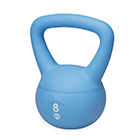POPSUGAR
Trending Stories
Spotlight
Introducing
01/01/1970
The Beauty Sustainability Challenge
These tiny (and expert-backed) tweaks can help you live a more sustainable lifestyle.
Read More
Every editorial product is independently selected by our editors. If you buy something through our links, we may earn commission.
:extract_cover()/2024/04/26/700/n/1922729/tmp_rrb9Lu_f368b1ca0b6d0341_GettyImages-2149435268.jpg)
:extract_cover()/2024/04/24/750/n/3019466/tmp_FpEbQH_f9d8d5076176c239_GettyImages-1488306973.jpg)
:extract_cover()/2024/04/16/965/n/1922153/tmp_d1FR7E_98b2795d67deffb0_Main_PS24_03_Beauty_FascinationWithTradWives_1456x1000.jpg)
:extract_cover()/2024/04/24/864/n/49351082/tmp_7TD5Ws_4ff1848f2ecec449_Main_PS24_04_F_H_CushingDisease_1456x1000.jpg)
:extract_cover()/2024/04/25/863/n/1922729/3e071b79662ab26fc1bc13.64318614_.jpg)
:extract_cover()/2024/04/24/953/n/49351082/bafa973b66297f369e6d67.45616240_.jpg)
:extract_cover()/2024/04/25/899/n/1922153/3cff953c662abe8f98eb55.47346826_.jpg)
:extract_cover()/2023/12/22/887/n/1922441/f943afff6585eee266c6b3.92524394_.jpg)
:extract_cover()/2024/04/25/789/n/49352476/dd7350f3662a996c58a0c1.24610684_.png)
:extract_cover()/2024/04/25/885/n/49351082/ed4c7c53662ab9ec256024.65804439_.jpg)




:extract_cover()/2024/04/23/768/n/1922283/641027bc6627ef4eb4eb44.12757853_.jpg)
:extract_cover()/2024/04/22/931/n/1922283/f830e2686626d4afb3a6c3.42111761_.jpg)
:extract_cover()/2024/04/18/908/n/1922283/556b59596621870d8a4705.73261695_.jpg)
:extract_cover()/2024/04/17/631/n/1922283/2772bd03661fd80962cdc3.40857743_.jpg)
:extract_cover()/2021/01/27/929/n/1922564/c3928cae6011d8c54589a6.95926065_.jpg)
:extract_cover()/2024/04/26/830/n/1922564/d88ac04e662bf8b6cb1a91.40429396_.jpg)
:extract_cover()/2024/04/25/836/n/1922564/6fea5215662aa9595c2ca6.78448120_.jpg)
:extract_cover()/2023/01/27/016/n/1922564/e50e327b63d45d10d44a79.28596233_.jpg)
:extract_cover()/2024/04/26/970/n/1922153/06cd493a662c2813288109.09565753_.jpg)
:extract_cover()/2020/12/16/647/n/29590734/14844a005fda1a87dca5c7.58670622_.jpg)
:extract_cover()/2020/03/25/829/n/1922153/8330bc405e7ba90f5e3f61.48961529_.jpg)
:extract_cover()/2024/04/26/910/n/1922153/154edbdd662c13b55416f8.00753093_.jpg)
:extract_cover()/2024/04/26/880/n/1922729/93c624c5662c097b081db8.66904933_.jpg)
:extract_cover()/2019/03/05/103/n/1922729/03e010c15c7f2273f189c1.65811619_.gif)
:extract_cover()/2024/04/16/896/n/1922441/0f94671d661edfdc947287.59737808_.jpg)
:extract_cover()/2023/10/18/852/n/1922729/031a5627653031bb9ebf66.28343397_.jpg)
:extract_cover()/2023/01/26/768/n/24155406/9195b96863d2b7e43da895.14342504_.jpg)
:extract_cover()/2024/04/22/852/n/24155406/7823b7516626ba30c507f7.57318212_.jpg)
:extract_cover()/2024/04/22/880/n/24155406/4485254b6626c3870c1715.18119828_.jpg)
:extract_cover()/2024/04/09/791/n/24155406/40c9d8f966158235c33aa5.52886392_.jpg)
:extract_cover()/2024/04/26/831/n/1922153/3c004557662bf9353697a0.76240577_.jpg)
:extract_cover()/2022/04/20/695/n/1922794/7c809781626029c7087250.24840044_.png)
:extract_cover()/2023/12/04/004/n/1922153/ffeab717656e5b7f460d83.84439419_.webp)
:extract_cover()/2024/04/25/129/n/1922153/c2952575662b0c391feb89.03917311_.jpg)
:extract_cover()/2024/04/24/704/n/1922398/38e84cfb66292b21a38262.25923048_.jpg)
:extract_cover()/2024/04/22/904/n/1922729/86e09e726626cbd474dac5.33437153_.jpg)
:extract_cover()/2024/04/17/812/n/1922398/c19c85d6662014fd5fea39.91320767_.jpg)
:extract_cover()/2024/04/19/812/n/1922398/c241ca8c6622b848a87926.28089400_.jpg)